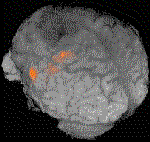

4201 Wingren
Drive, Suite 112 Irving, Texas 75062
972.541.0818 FAX: 972.541.1759
www.jackdial.com
 |
 |
The McCarron-Dial System (MDS)
The McCarron-Dial System (MDS) is a battery of neuropsychological and behavioral measures introduced to the field of rehabilitation in 1973. The system has been incorporated into many rehabilitation, public school and clinical settings to assess educational and vocational potential of individuals with neuropsychological disabilities.
In this context, disabilities of a neuropsychological origin are presumed to have, as their primary etiology, a pathological deviation of structure or function in the higher brain centers. Regardless of specific etiology, the primary functional limitations of these disabilities involve one or more of the higher cortical systems which mediate perception, memory, learning, cognition, language, affect, and/or complex voluntary motor movement. As such, various disorders such as mental retardation, cerebral palsy, brain trauma, attention-deficit disorder and learning disabilities are subsumed under the neuropsychological category and have been evaluated by the MDS.
The MDS is based on a neuropsychological model which incorporates traditional views of brain function, as well as the concepts of A.R. Luria. The model and process of evaluation includes a multifactor approach to data gathering is viewed by McCarron and Dial as essential in the evaluation of higher cortical functions. The process of developing the MDS began in 1970 and research continues to date.
McCarron & Dial emphasized the need to establish a logical model and peocess of evaluation to most efficiently and effectively evaluate
the vocational potential and independent living skills of people
with disabilities. The model proposed defined both the process and
the essential content to be included in the evaluation of persons
with disabilities. The process includes:Verbal-Spatial Cognitive Factor (VSC): This is defined as the
individual's ability to use language (communicate), to process
and retain verbal and spatial information, and to learn.Sensorimotor Factor (SM): This includes data related to the basic mechanisms of receiving and perceiving information from the environment and responding in a purposeful and adaptive
manner.Emotional-Coping Factor (EC): This includes information
related to the person's characteristic responses to stress,
general personality development, emotional-behavioral
functioning and adaptive behavior. Adaptive behavior is defined
as the individual's knowledge and skills related to activities
of daily living, personal-social adjustment and work adjustment.
Purchasing the MDSThe MDS is available for purchase from McCarron-Dial Systems. McCarron-Dial Systems is a separate business entity and is the test publisher. Contact them for purchasing test instrumentation, software, manuals, protocols, and information on certification seminars offered in several geographic regions.